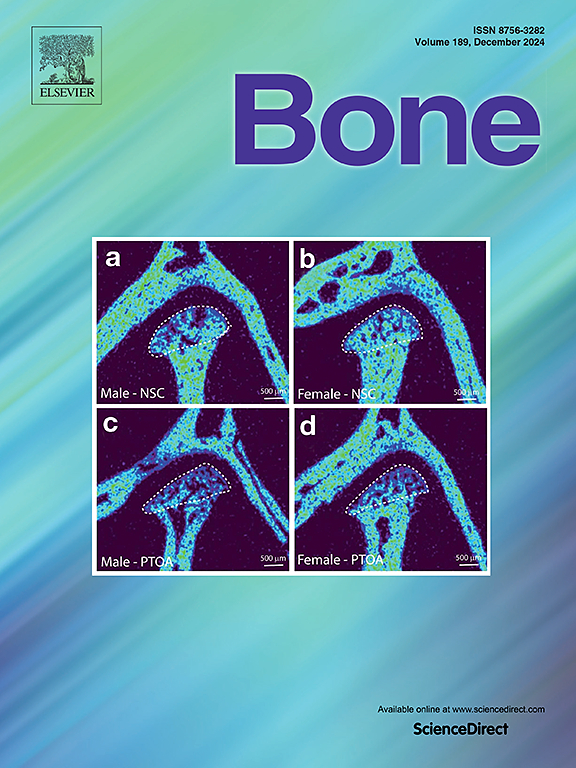基于代谢-表观遗传相互作用的骨和牙再生:从影响和机制到治疗潜力。
IF 3.5
2区 医学
Q2 ENDOCRINOLOGY & METABOLISM
引用次数: 0
摘要
在骨和牙齿丢失和缺损期间,代谢途径表现出波动的活动,表明代谢可塑性受到调节。骨骼重塑是一个与代谢活动改变有关的能量消耗过程。这些代谢变化通常与表观遗传修饰有关,包括通过表观遗传机制修饰的酶的表达或活性的变化,这些变化直接或间接地影响细胞代谢。由骨骼和牙齿状况驱动的代谢重编程通过在代谢物水平上调节DNA和组蛋白修饰酶的活性来改变表观遗传景观。表观遗传机制调节代谢基因的表达,从而影响代谢组。表观遗传学和代谢组学之间的相互作用对于通过保持细胞增殖和多能性来维持骨和牙齿的稳态至关重要。因此,本综述旨在研究骨和牙齿相关细胞代谢重编程对表观遗传修饰调控的影响,特别是乙酰化、甲基化和乳酸化。我们还讨论了染色质修饰酶对代谢的影响以及膳食化合物作为表观遗传调节剂的潜在治疗益处。在这篇综述中,我们强调了目前研究结果的不一致之处,并提出了将基本见解转化为骨和牙齿疾病临床治疗的潜在方法。本文章由计算机程序翻译,如有差异,请以英文原文为准。

Metabolism-epigenetic interaction-based bone and dental regeneration: From impacts and mechanisms to treatment potential
Metabolic pathways exhibit fluctuating activities during bone and dental loss and defects, suggesting a regulated metabolic plasticity. Skeletal remodeling is an energy-demanding process related to altered metabolic activities. These metabolic changes are frequently associated with epigenetic modifications, including variations in the expression or activity of enzymes modified through epigenetic mechanisms, which directly or indirectly impact cellular metabolism. Metabolic reprogramming driven by bone and dental conditions alters the epigenetic landscape by modulating the activities of DNA and histone modification enzymes at the metabolite level. Epigenetic mechanisms modulate the expression of metabolic genes, consequently influencing the metabolome. The interplay between epigenetics and metabolomics is crucial in maintaining bone and dental homeostasis by preserving cell proliferation and pluripotency. This review, therefore, aims to examine the effects of metabolic reprogramming in bone and dental-related cells on the regulation of epigenetic modifications, particularly acetylation, methylation, and lactylation. We also discuss the effects of chromatin-modifying enzymes on metabolism and the potential therapeutic benefits of dietary compounds as epigenetic modulators. In this review, we highlight the inconsistencies in current research findings and suggest potential approaches to translate fundamental insights into clinical treatments for bone and tooth diseases.
求助全文
通过发布文献求助,成功后即可免费获取论文全文。
去求助
来源期刊

Bone
医学-内分泌学与代谢
CiteScore
8.90
自引率
4.90%
发文量
264
审稿时长
30 days
期刊介绍:
BONE is an interdisciplinary forum for the rapid publication of original articles and reviews on basic, translational, and clinical aspects of bone and mineral metabolism. The Journal also encourages submissions related to interactions of bone with other organ systems, including cartilage, endocrine, muscle, fat, neural, vascular, gastrointestinal, hematopoietic, and immune systems. Particular attention is placed on the application of experimental studies to clinical practice.
 求助内容:
求助内容: 应助结果提醒方式:
应助结果提醒方式:


